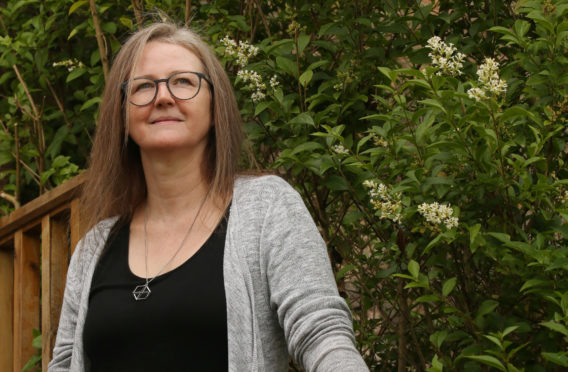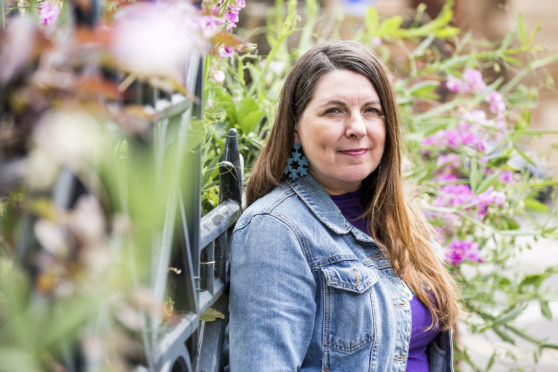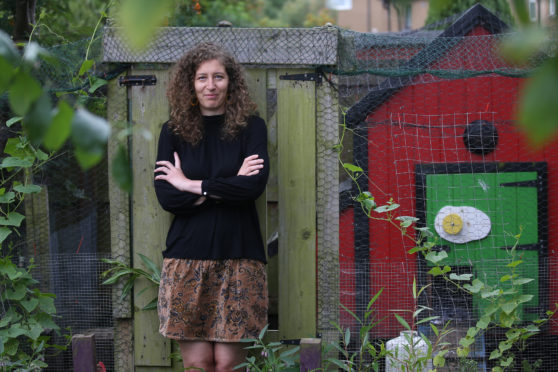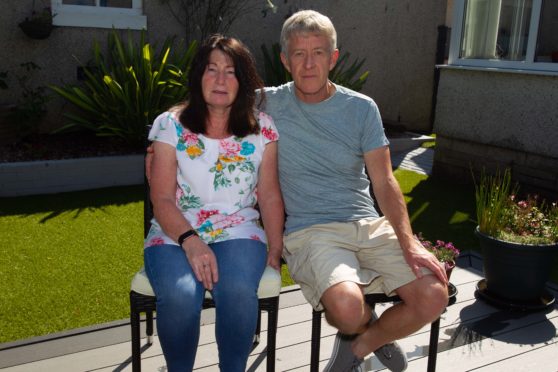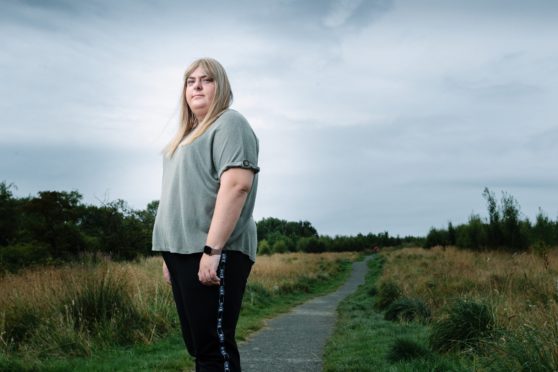
Jenna McDonald can remember years ago but, sometimes, she will climb to the top of the stairs and not know why.
Mercifully, she also cannot remember a single minute of the long, desperate weeks in intensive care where her life hung in the balance after she became one of the first Scots to be crushed by Covid.
She survived but, weeks into her recovery, admits her short-term memory loss is just one of the continuing, debilitating symptoms.
Her partner tells her she’s repeating things. People phone and she’ll greet them as if she hadn’t spoken to them for months when she spoke to them a few days before. “Long-term, my memory is fine,” said Jenna. “But, sometimes, I can’t remember why I’ve gone up the stairs.
“I’ll say something to my mum and she’ll say I’ve already told her that. People call and I can’t remember that I’ve spoken to them.”
She had hoped to be better by now. Although, she had also thought she would be better soon after contracting Covid-19. She would spend some time recovering in bed with what felt like flu, then head back to work as a carer and get on with the business of planning her future with partner Craig.
Within days she was fighting for her life on a ventilator. These days the once-active 34-year-old has been left with damaged kidneys and problems with her memory. She sometimes gasps when she talks, because of the persistent breathlessness she continues to suffer, five months on.
“I’m hoping that these things improve with time, but the doctors just don’t know,” said Jenna, speaking in the front room of her mum’s home in Airdrie. “I just can’t do what I used to do.”
In mid-March, Jenna and Craig went on a Saturday night double date with her brother and partner to see comedian Jimmy Carr at the Armadillo in Glasgow. Their best guess is she stood too close to the wrong person, or touched a contaminated surface.
A cough developed on the Monday following the gig, and Jenna – and the rest of the household – diligently followed the guidelines and self-isolated.
“I wasn’t really afraid,” she said. “They were saying if you isolated for two weeks then you could go back to work. I thought it would pass after that fortnight.
“All of a sudden I started getting really breathless. Even walking the few feet to the toilet from my bed became a struggle. I couldn’t breathe.”
By the weekend, Jenna was struggling badly. There was a distinct crackle coming from her chest and her lips had turned blue. Despite encouragement from Craig, Jenna was reluctant to see a doctor. By Saturday, though, she’d given in and went with mum Mabel to the Covid Hub at Airdrie Health Centre, where they tested her oxygen levels.
A healthy oxygen saturation level usually ranges between 95% and 100%. Any lower indicates a breathing problem; 92% or below points towards severe asthma, while anything less than 80%-90% is considered critical.
Jenna’s mum, auxiliary nurse Mabel, recalled how she watched in horror as her daughter’s saturation level plunged to 58%.
Rushed to University Hospital Monklands in the town, Jenna, who must regularly pause to take breaths as she recalls her days in intensive care, said: “Craig said I called him from the ambulance and told him they were going to put me to sleep but I don’t remember the call or the ambulance. There are a lot of things I don’t remember now.
“The last thing I recall was the siren, the paramedics saying ‘three minutes to arrival’ and being taken through the doors of the hospital.”
Over the course of the week, Jenna’s immune system, responding to the coronavirus invasion, caused inflammation in her chest. Fluid gathered there and, with reduced surface area in her lungs, she couldn’t absorb enough oxygen to survive. Now sedated, intensive care nurses hooked her to a ventilator.
“They said if it had been another day I wouldn’t have made it,” added Jenna. “That’s scary. I’m glad we phoned when we did.”
Mabel’s husband John developed Covid symptoms too but, thankfully, they stopped at a cough and severe fatigue. Mabel and Craig both lost their sense of taste.
“My daughter was very close to dying,” said Mabel. “It’s frightening to think she was hours away from the end. We were scared, but we didn’t know what was happening. I didn’t realise it at the time but, looking back, as a family we were traumatised.”
While they fretted, Jenna spent a week fighting for her life in isolation. The reaction in her body caused her kidneys to fail – then an unexpected symptom of the disease but now recognised as a risk. After a week, she eventually woke up in the hospital’s renal ward.
“I didn’t know where I was. I thought I’d been hit by a bus,” she said. “One of the nurses told me to give my mum a wee phone but they never explained I’d been in intensive care for a week. As far as I knew, I’d been in hospital for a day.”
Gradually her kidneys improved with the help of dialysis, but it was a difficult journey to recovery over the course of a month, unable to move from her hospital bed.
She was weak, barely able to lift her phone. While trapped in bed, she began to hallucinate.
“I thought I was in the jungle,” she added. “One of the nurses told me I said to her I was worried about a lion hiding in the bathroom at the foot of my bed.
“It was unusual, but I was afraid. I kept wondering when it would end…if it was a dream I could never escape from.”
Nurses applauded her as she left Monklands Hospital following a 30-day battle – a mortifying experience for Jenna, whose hair, she feared, “looked like a bird’s nest”.
Jenna was told she was one of the first in Scotland to leave hospital having successfully battled against kidney failure. It was a surprise to consultants, who initially told Jenna her kidneys might never heal.
Hopes of a full and swift recovery faded quickly, though. Jenna has been left with enduring fatigue and breathlessness, which makes it feel like she’s “carrying three people” on her back.
Too unwell to return to the job she loves as a mental health care worker, she’s soon going down to half pay. When she’ll feel well enough to return, she doesn’t know. Plans to buy a house with Craig – she points out the flats overlooking her mum’s garden as having potential – have been put on hold.
Part of her job as a carer involves taking people with learning difficulties and mental health problems to the shops or to bingo. These are things she herself now couldn’t do without her own carer.
Jenna has stark advice for those who haven’t contracted coronavirus. “It’s possible we’re going to get a second wave. I’ve seen a lot of idiots online partying and not social distancing,” she said. “People are still not taking it seriously until someone in their family gets to the point I’m at.
“There are loads of people on my Facebook saying they don’t wear a mask. Nurses are doing it in difficult conditions for 12 hours a day and they’re moaning about doing it for half an hour while they go to get their messages? My mum has asthma and she wears a mask.
“You’re not invincible, believe me. Doctors told me I was hours away from dying from this virus. Wake up, stop being so selfish.”

Enjoy the convenience of having The Sunday Post delivered as a digital ePaper straight to your smartphone, tablet or computer.
Subscribe for only £5.49 a month and enjoy all the benefits of the printed paper as a digital replica.
Subscribe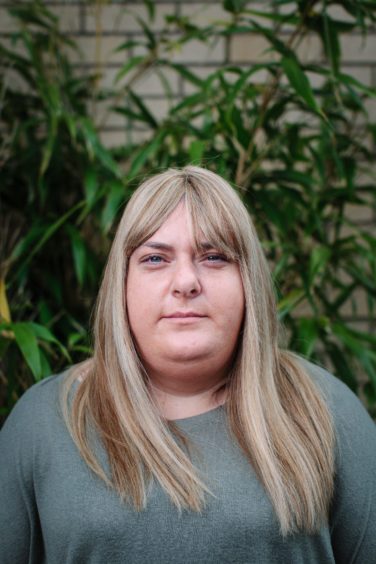 © Andrew Cawley
© Andrew Cawley
